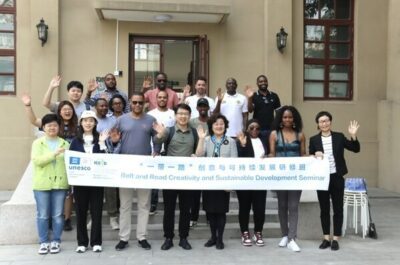REPORT – BERLIN – IHIF: The sessions of the last day in the International Hotel Investment Forum focused on two themes: technology in hospitality and the value that brands are giving to hotel assets. Leo Brand, CEO of Swisscom Hospitality Services opened the session by pointing out that technology is increasingly transforming how consumers interact with business and make purchasing decisions. As the mobile internet replaces the desktop internet, consumer behaviour is being transformed and the industry…
REPORT – BERLIN – IHIF: The sessions of the last day in the International Hotel Investment Forum focused on two themes: technology in hospitality and the value that brands are giving to hotel assets. Leo Brand, CEO of Swisscom Hospitality Services opened the session by pointing out that technology is increasingly transforming how consumers interact with business and make purchasing decisions. As the mobile internet replaces the desktop internet, consumer behaviour is being transformed and the industry, as a whole, needs to adapt. He then introduced David Rowan, the editor of the UK edition of WIRED magazine who presented his take on the 10 digital trends businesses need to be aware of when they are designing their customer strategies. “The future is here”, he said, “it’s just not evenly distributed. The trends are there, you just need to be able to notice them going mainstream”.

David Rowan and Leo Brand
The first trend that Rowan pointed out is that smartphones are overtaking PCs. “We’re in a new internet revolution”, he said, “and this switch to mobile internet transforms behaviour”. He labelled the second trend as “power comes to those who can tap on data” and explained that “there is so much data about consumers today out there and storage of information has become so cheap, so the opportunity is there”. The combination of data with smart visual tools give rise to the third trend “the augmented world” where geolocation technology creates social value for the consumer and enriches experience. He gave example of ‘dating’ websites which use geolocation for their members to locate people they would like to meet. The fourth trend is that consumers know the true value of the internet. He criticised some hotels which charge £12-£14 their guests for the use of internet. “Internet activity is increasingly seen as a ultility”, Rowan said, “you don’t charge guests who use water when they have a bath so why don’t you give me a pretty basic level of this commodity free and if I want to download a movie I can pay extra?” Consumers know the value of this utility and increasingly feel as being ripped off. The fifth trend, according to Rowan, is that marketing is becoming more personal and it can serve consumer better. He brought examples of companies which use data they have about consumers to predict their behaviour about other products. “Where things are becoming exciting”, he added, is with the sixth trend, ‘transaction led by social influence’. “Also known as ‘social commerce’ this is your friends influencing your purchasing decisions” and he gave examples of people posting on websites everything that they buy on a daily basis thus influencing others’ behaviours depending on what they judge is “cool”. Obviously this leads to the seventh trend: “Privacy is SO over”, he said, pointing that there are so many people who voluntarily give up their privacy just to be ‘connected’ with the online community. “One of the big things, however is that, like in every other industry, if you are an incumbent, the crowd is coming fast” Rowan presented as his eighth trend arguing that competitive advantages will be extremely short-lived. The ninth trend for Rowan is that “technology is disappearing”. One does not need to press a button or move their hands to make something happen, technology is evolving so fats that we have applications responding to a smile, a wink, a movement of the eye or even an emotion or a thought. And all these trends nicely lead to the tenth digital trend which is “everything is now transparent”, people know costs, transactions are clearer and nothing can be hidden. In the very interesting discussion that followed, Brand and Rowan explored the impact of these tends on hoteliers.

Pavelko, Ranque and Sullivan
The second session of the day which was moderated by David Scowsill, President and CEO of WTTC looked at the distribution channels of the future. Chuck Sullivan, Senior VP, Global Online Services of Hilton Worldwide argued that in the past ten years he goes to conferences and hears that “this is going to be the year of mobile internet” but then nothing happens. David Pavelko, Head of Travel in Google, Inc and Cyril Ranque, Senior VP Global Lodging in Expedia Partner Services Group affirmed that this year is indeed the beginning of the era for mobile distribution. Pavelko referred to a study of December 2010 which showed that 34% of Google users who conducted hotel-related searches did so from a mobile device, mostly because they were away from their normal work desktop. On the other hand, Expedia showed the seriousness of their statement with the acquisition last year of mobile travel apps developer Mobiata. Ranque said that with the pace that mobile traffic to their sites evolves they felt they needed the right team to help them address this sizable opportunity swiftly and successfully. Finally, answering Scowsill’s question on Google’s involvement with travel and accommodation distributiom, Pavelko assured everyone that Google will not enter the ‘transaction side’ of things but will maintain the referral business model they currently follow.

Croston, McPherson,Pepper, Skea-Strachan and Teng
In the final session of the conference which was moderated by Frank Croston of Hamilton Hotel Partners, Amy McPherson, President and Managing Director for Europe, Marriott International and David Pepper, Senior Vice President Global Development for Choice Hotels presented the benefits and added value that their brand flags bring to hoteliers. Nick Skea-Strachan from Berwin Leighton Paisner LLP agreed that brands offer added value to hoteliers, however, he questioned the extend to which this justifies the management contract fees model as practised today with fees on total revenues, duration between 20-25 years and non existence of specific performance metrics during this period. Ted Teng, President and CEO of the Leading Hotels of the World agreed with Skea-Strachan and argued that their model is bringing added value of perhaps 20% to the hotels they represent but they charge fees only on this incremental value they offer. “We don’t see ourselves as working on 100% of the hotels’ results”, he said. “They are independently owned and operated, and we help them reach markets that are not as easy for them to reach”.

Focus on Ukraine
The 14th International Hotel Investment Forum came to an end for this year with the “Country Forum” where, according to the organisers, opportunistic investors were able to find hidden gems. Sessions focusing on Spain, Russia, Ukraine, Brazil, Colombia and Argentina provided the attendees with key information on countries that offer exceptional investment opportunities.
Theodore is the Co-Founder and Managing Editor of TravelDailyNews Media Network; his responsibilities include business development and planning for TravelDailyNews long-term opportunities.

























![[PR] PR_Ascott and Vimut Hospital_2024](https://www.traveldailynews.asia/wp-content/uploads/2024/04/PR-PR_Ascott-and-Vimut-Hospital_2024-400x265.jpg)






















































